On Designing for Inclusion With Xbox Adaptive Controller Co-Inventor, Bryce Johnson
Gaming is for everyone
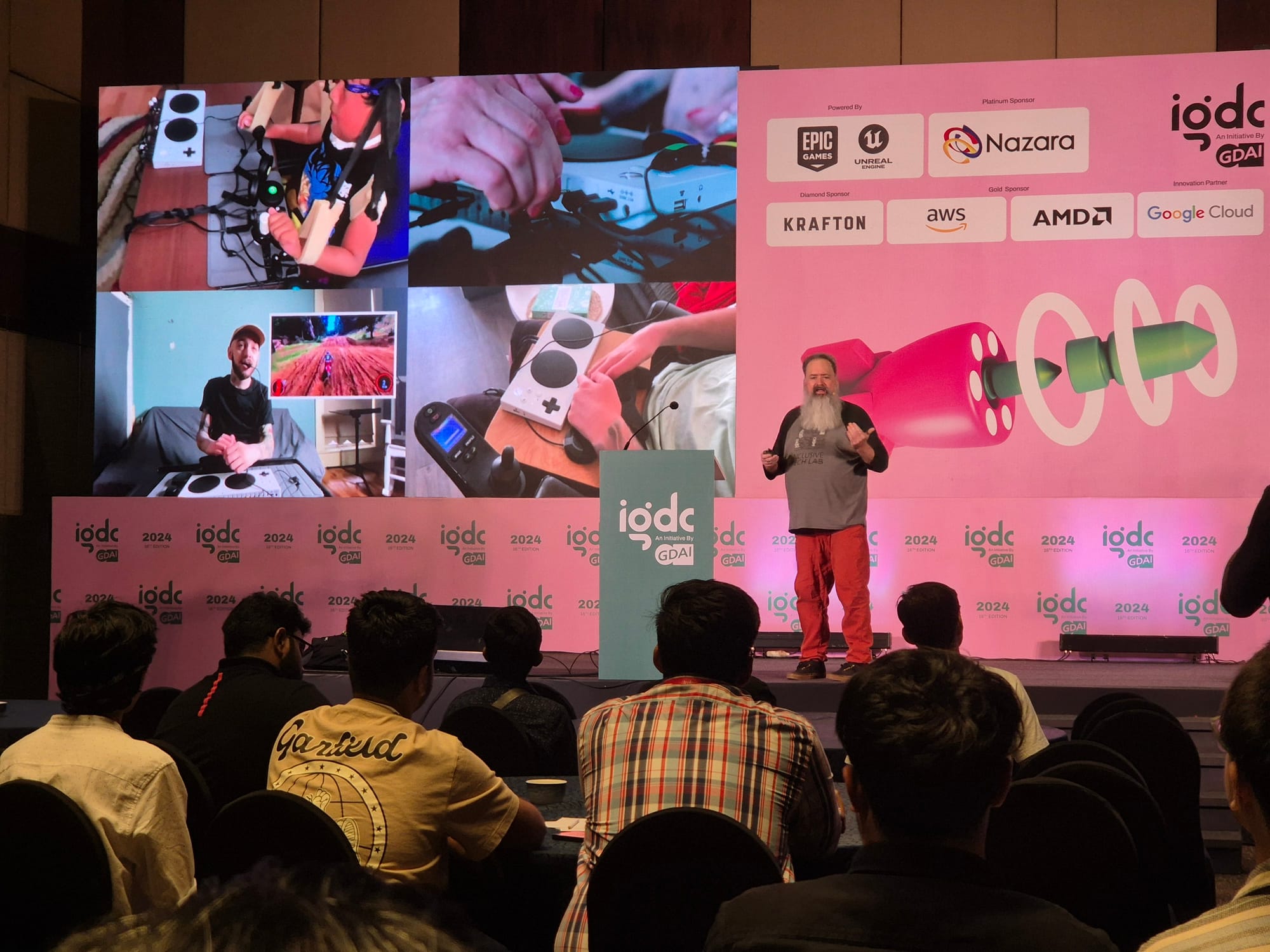
In March 2025, Microsoft partnered with Nintendo, EA, Google, and Ubisoft to launch the “Accessible Games Initiative,” promising clear accessibility labels on digital storefronts. These include auditory features, input remapping, and visual options like text size and chat speech-to-text. It’s the latest step in a medium that continues to chip away at barriers for players with disabilities. At IGDC ‘24, we sat down with Bryce Johnson, the co-inventor of Microsoft’s excellent Xbox Adaptive Controller, to understand how game studios design for inclusion.
During his talk at the conference, Bryce played a video of Mike the Quad, a quadriplegic Twitch streamer with no finger function, playing rapid input-heavy shooter Apex Legends with an Xbox Adaptive Controller. Bryce’s bold claim of “I don’t believe in empathy, I believe in compassion” meant he knew he couldn’t fit into everyone’s shoes. But that didn’t stop him from advocating for a hardware ecosystem that enriches the lives of players with disabilities.
“I don’t believe in empathy, I believe in compassion.”
“We had to recognize that our [standard] gaming controller, the only way to interact with the console, couldn’t be used by everyone,” noted Bryce. “So we needed to create an alternative and we worked with a number of organizations, including Warfighter Engaged, AbleGamers, SpecialEffect, Cerebral Palsy Foundation, and Craig Hospital. We worked with all those organizations to develop the Xbox Adaptive Controller, a modular controller that people can use to build a controller that fits their movement.”
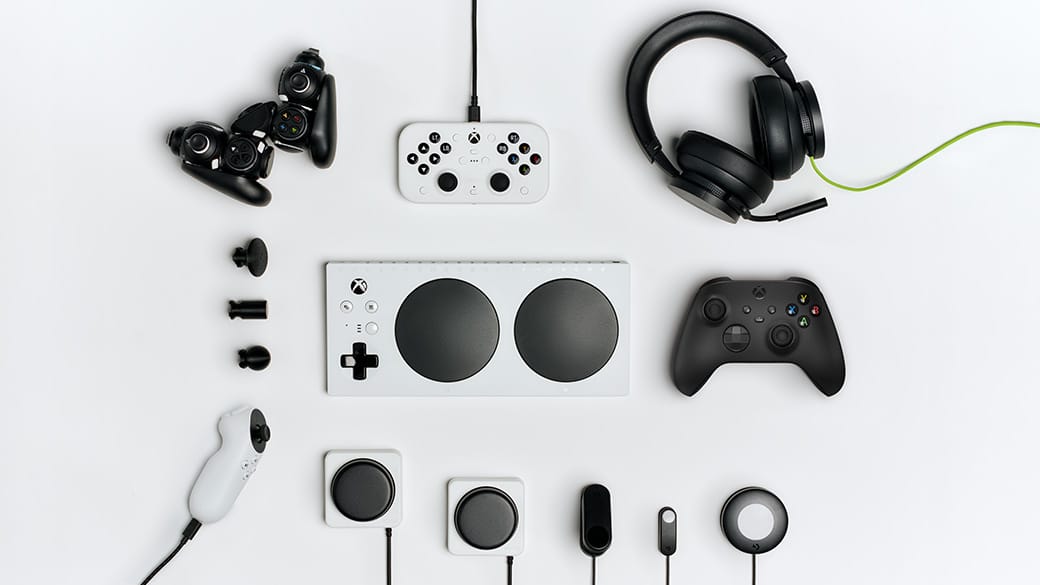
Working with multiple communities helped the team narrow their scope and build the Xbox Adaptive Controller in 2018. It was a peripheral that could be used by a massive community of modders who were already tweaking standard controllers in the pursuit of inclusion. In an interview with The Verge, Microsoft’s corporate vice president of Windows and devices Robin Seiler pointed out that Microsoft was close to canceling its Adaptive Controller project. But their employees rebelled and made it happen at a price point of $100. When asked about what features didn’t make the cut, Bryce likened it to choices over sacrifices.
“People come up to me all the time and tell me ways in which it could be better, which is great. I like to do that,” admitted Bryce. “But I think what people don't realize is that when you head in one direction towards enabling a certain group of people, you are heading away from another direction. So they don't really know and it's understandable why they don’t. They don't really understand the balance that we were trying to strike.”
“It’s hard to have those solutions that you create for people with very significant needs, branch out, and help more people.”
On what’s next in the field of inclusive design, Bryce agrees that “... it’s a tricky balance. Because you can certainly find people with significant needs and create solutions for them. But sometimes, it’s hard to have those solutions that you create for people with very significant needs, branch out, and help more people. And that’s what we're always trying to do, we’re trying to create these things that don't just help a very specific group of users. We call it, in our user design methodology, solve for one, extend to many.”
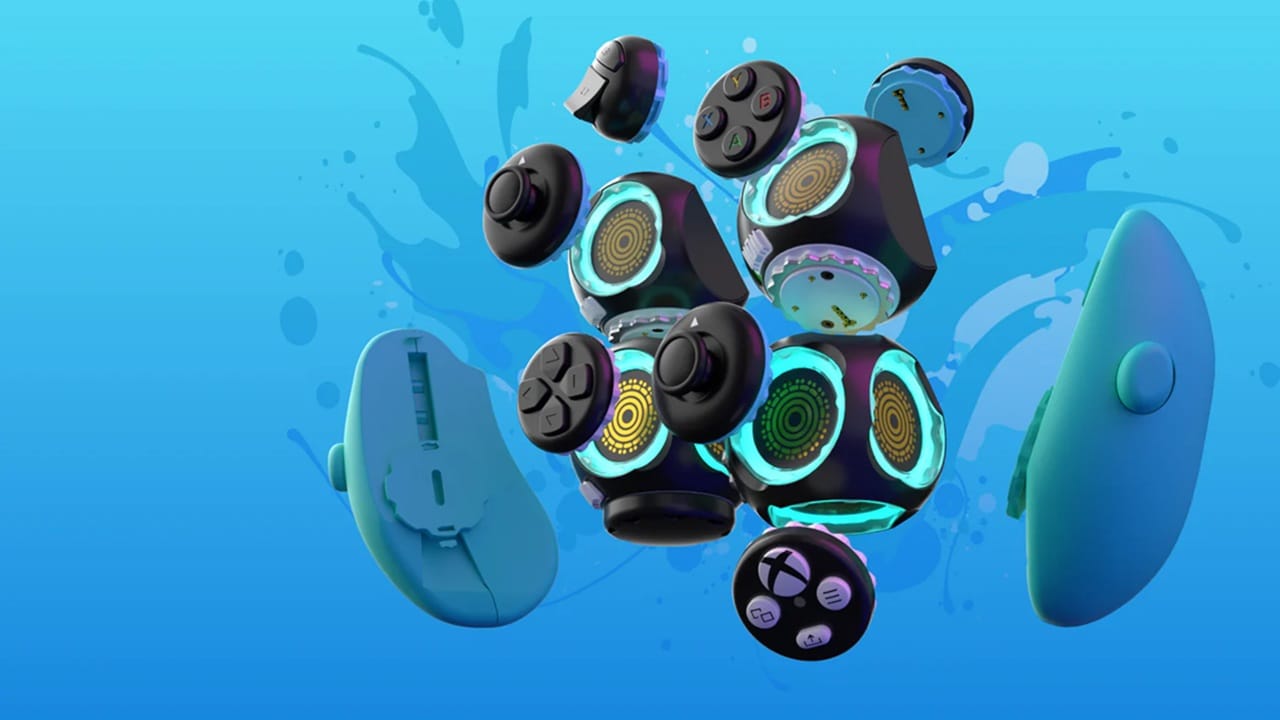
He quickly pointed out that “It doesn't mean that specific solutions aren’t important or valuable. It's just not basically a place where I think we feel like we should be fine. I work with Windows, and 1.5 billion people in the world use Windows. So you know, reach is important, but that doesn't mean that I don't love talking to people who make very specific devices.” That’s where third-party manufacturers like Byowave’s Proteus controller with customisable cubes come in. “We had a partner at Xbox called 8BitDo that released a controller for us, for folks with minimal mobility and it tackles a subset, a very specific subset of users. I really appreciate that they did that and I love that they get that.”
“Solve for one, extend to many” continues to be applied across Microsoft’s inclusive efforts. “We have lots of people at Microsoft working on accessibility full-time,” notes Bryce. “We have people at Microsoft who work on all kinds of diversity full-time. Xbox itself has a program called Gaming for Everyone, which looks at how people are marginalized across many facets of gaming. It's important that the staff and the people who work at Microsoft really value this type of work.” Grant Stoner’s list of 2024’s best accessible games for IGN featured both AAA studios and indie teams, indicating that inclusive design continues to grow in prominence.
“It's important that the staff and the people who work at Microsoft really value this type of work.”
Prince of Persia: The Lost Crown (2024) from Ubisoft’s disbanded Montpellier-based development team, was lauded for its accessibility features, especially its Guided Mode and Memory Shards. The latter reminded you to return to once-locked areas after gaining new abilities. While the decision to turn this accessibility feature into a consumable earned from optional challenges was baffling, it’s still a step in the right direction. SUPERJUMP author Josh Bycer’s article on approachability vs accessibility dives deeper into this dilemma. On that note, Bryce’s landmark moment in accessibility was Naughty Dog’s The Last of Us Part II (2020).
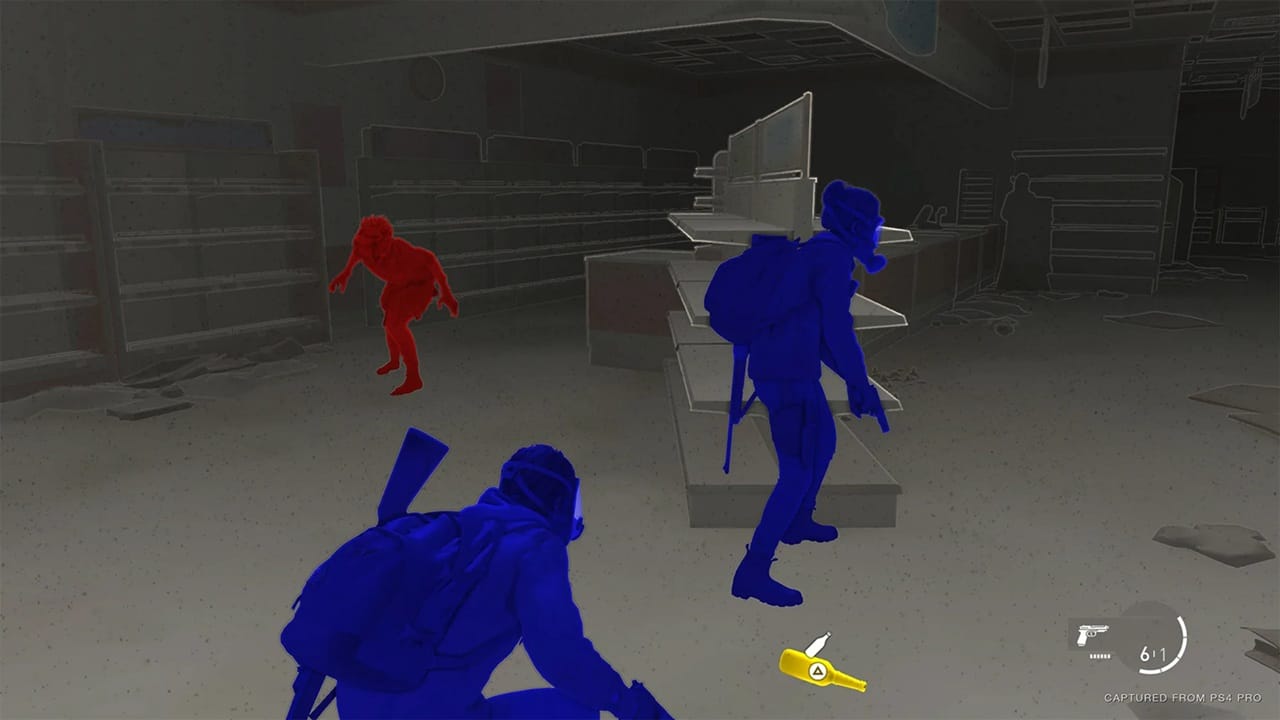
Preset options for fine motor and hearing, and additional features for low-vision players led to accessibility consultant Steve Saylor telling PlayStation that the game “removed barriers I’ve always had in games and I can now enjoy the game as it was meant to be played.” Bryce was also impressed. “I think that [The Last of Us Part II] is, it's really important to kind of recognize that,” he said. That year, The Game Awards introduced an Innovation in Accessibility category.
“For me, there are a bunch of little things that stand out. Like Celeste had a fun story. In our portfolio, the folks at Rare who work on Sea of Thieves have been unwavering in their commitment to shipping accessibility features every release. So that's certainly incredible and the folks at Turn 10 have done some amazing work as well with Forza.” Bryce’s mention of Sea of Thieves reminded me of streamer Sightless Kombat following the sounds of his crewmates to help steer a ship and fight skeletons.
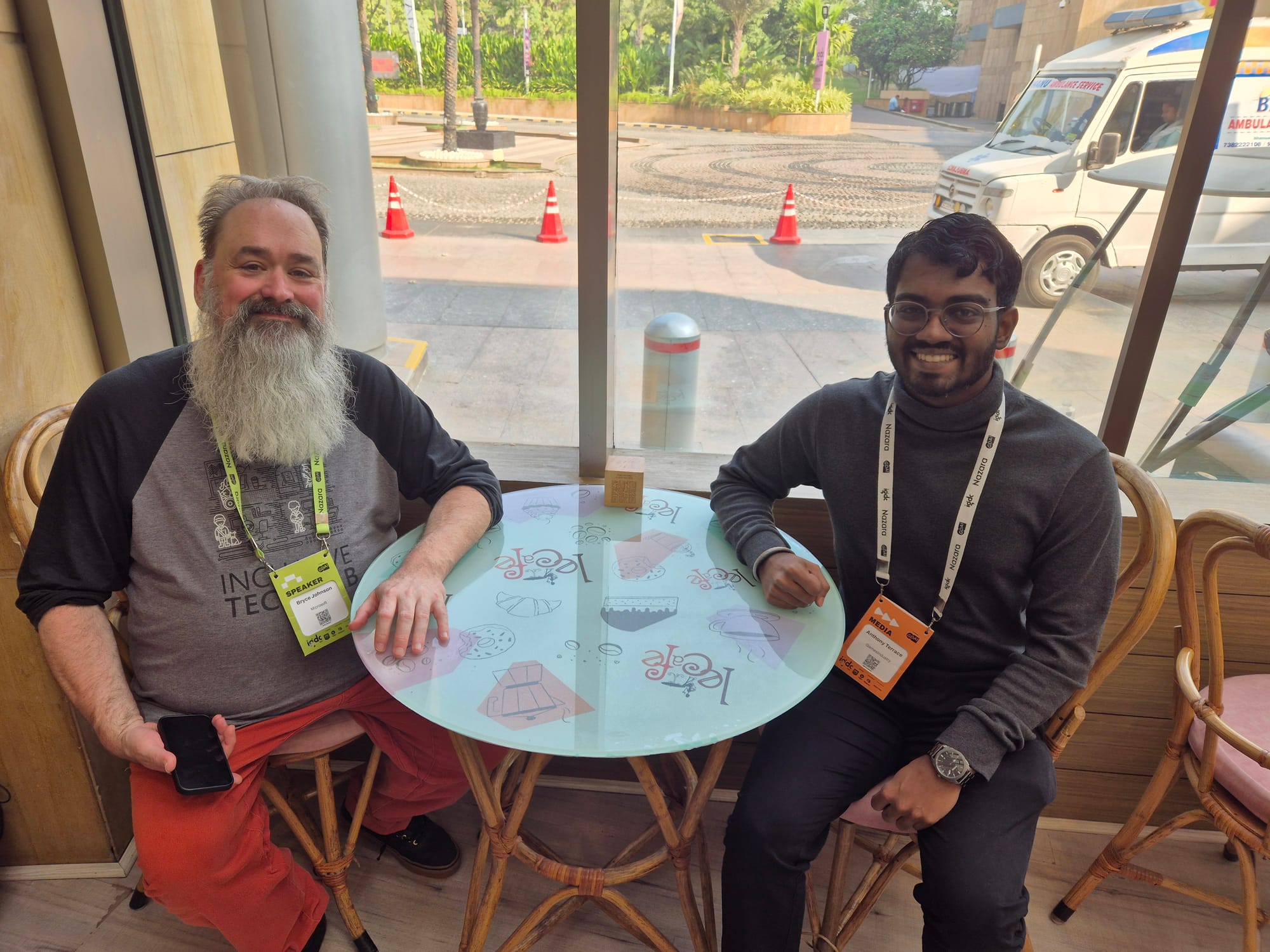
“We’re starting to gain a bit more maturity, where it's not these one-off things, it’s an ecosystem of products.”
If you’re looking for advice on designing for a wider audience, Bryce points to existing frameworks like the Game Accessibility Guidelines to get started. “There are lots of people having these conversations. So I think you can pick up stuff from that.” On the hardware front, Bryce also noted that “we’re starting to gain a bit more maturity, where it's not these one-off things, it’s an ecosystem of products. So I appreciate that maturity and I’m hopeful that in the future we can do more to converge on that.”
In an interactive medium perfectly suited to tackle social isolation and create memorable experiences as a community, it’s reassuring to see that accessibility is no longer an afterthought. Communities with thousands of hours working with people with disabilities are helping shape the next generation of video games. Despite the abuse allegations, AbleGamers raised millions across charity events and helped Activision Blizzard implement accessibility features in Diablo 4, netting it a nomination for 2024’s Innovation in Accessibility award. A quote on the Game Accessibility Guidelines page perfectly encapsulates the need for inclusive gaming: “We exist and we want to buy your games".
